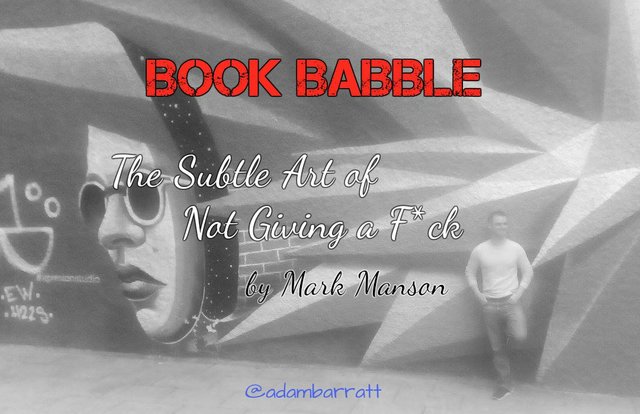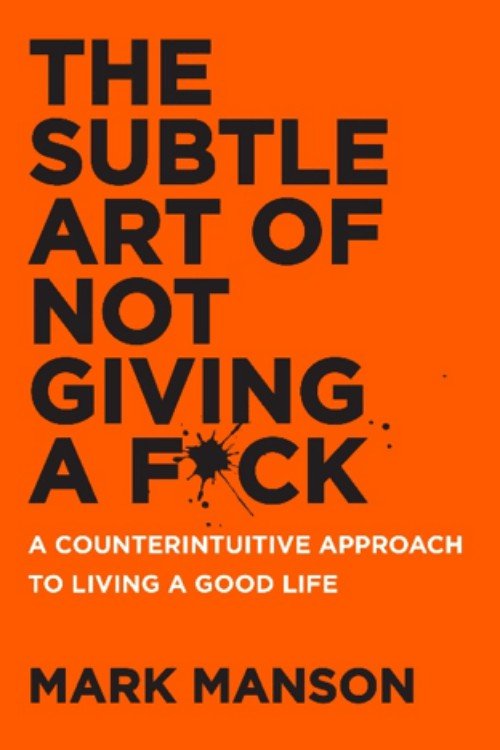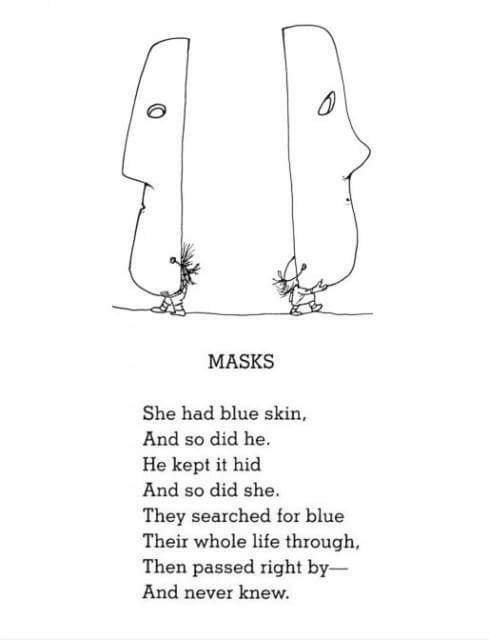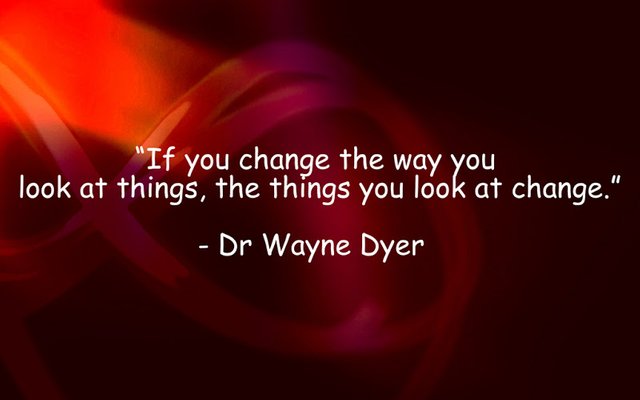Book Babble #11: "The Subtle Art of Not Giving a F*ck" by Mark Manson
"A Counterintuitive Approach to Living a Good Life"
Who is Mark Manson and why should we give a f#ck? ;)
Back with the Book Babble, and today a personal growth type book with a twist. Don't be fooled by the title, there's a lot more going on here ;).
First off, if you're not the type to appreciate the occasional f-bomb then this style of fare is probably not for you. That capture is more of a hook, aimed at his target audience but when you peel it back what we find is something far more profound.
I was aware of Mark Manson’s work already and he's one of my favourite writers out there (in fact, I included him in my post on Charles Bukowski a while back). His blog is intelligent and insightful and he has also put out a previous book.
First off, let’s address a potential issue. The title may seem arrogant and as if the book would encourage you to not give a shit about anyone or anything and essentially be an asshole. The opposite would in fact be true.
It’s more a case of getting clear on what you do care about, prioritising those things and disregarding (or minimising) things you don’t care about so much. This is pretty much the cornerstone of any good personal growth wisdom.
Ok, with that said, let's jump in to some of the meat!
Classic quotes in the book along with my additional musings…
“The smallest dog barks the loudest.”
Small man syndrome! I touched on this in my previous post - a truly confident person isn't shouting about it… there's no need. The people with all the noise are the ones that feel they have something to prove. It's that classic teacher quote (you know, when they were trying to keep you quiet): empty vessels make most noise.
Our crisis is no longer material; it’s existential, it’s spiritual.
Our material needs are generally met. It goes back to Maslow and his hierarchy of needs, most of the western world has the basics covered and have an abundance of choice. Too much perhaps, and therein lies the rub. What people are crying out for is climbing that pyramid, realising their potential, living their lives passionately and experiencing deep and meaningful connection. This isn't happening for most and where the 'crisis' lies.
You can’t be an important and life-changing presence for some people without also being a joke and an embarrassment to others.
A very powerful quote and it's a tough one to take for many people, but it's true. You can't please everyone, and you're likely to do yourself a mischief if you try. You could well be a life-changing influence for someone (perhaps unknowingly) but then try and water it down to avoid the judgment of the others. Everyone loses. You search for a 'happy medium' and end up pleasing no-one. Least of all yourself. The old cheesy advice of 'be yourself' is quite correct. Find out who you are, display it to the world, and let the chips fall as they may.
problems never fucking go away, he said—they just improve. Warren Buffett’s got money problems; the drunk hobo down at Kwik-E Mart’s got money problems. Buffett’s just got better money problems than the hobo. All of life is like this.
The 'problems' just change. Money may solve a few but then it will bring some new ones! Usually better ones, but not always. And it's not just money, everything is in a state of flux and there will always be certain issues that arise, that need to be dealt with. So learning to adapt and overcome such obstacles at each stage is the key rather than trying to jump to some imaginary level of salvation. That might happen when you die, but until then there's a tide to ride.
“Don’t hope for a life without problems,” the panda said. “There’s no such thing. Instead, hope for a life full of good problems.”
This is based on a fictional conversation with 'Disappointment Panda', a superhero Manson created to make some of his points. This character would tell people harsh truths, things they needed to hear but not necessarily want to accept. An 'annoying friend' keeping it real.
There will always be obstacles and challenges… what we're doing is making them the best sort they can be.
Problems never stop; they merely get exchanged and/or upgraded.
Constant improvement.
Happiness comes from solving problems.
Otherwise known as progress. Any progress made contributes to our wellbeing.
To be happy we need something to solve. Happiness is therefore a form of action;
Without any 'problems' there wouldn't be anything to do! Action (of any kind) and 'happiness' go hand in hand.
Remember, nobody who is actually happy has to stand in front of a mirror and tell himself that he’s happy.
This is where affirmations fall down. Having to convince yourself of something is not the one. And if it does work, it's just a short-term fix and you need to address the underlying issues and all the rest will happen naturally. Nothing wrong with acting 'as if', but essentially rocking back and forth saying everything's great and not actually believing it are the actions of a crazy person.
Emotions are simply biological signals designed to nudge you in the direction of beneficial change.
The clues are there! Emotions are a guidance system to nudge you towards what you want and away from what you don't. Listen to them… and acting on them would be a good idea too.
negative emotions are a call to action. When you feel them, it’s because you’re supposed to do something. Positive emotions, on the other hand, are rewards for taking the proper action. When you feel them, life seems simple and there is nothing else to do but enjoy it. Then, like everything else, the positive emotions go away, because more problems inevitably emerge.
The circle of life. Learn to enjoy the dance!
“hedonic treadmill”:
Also known as hedonic adaptation. A psychological term meaning we work hard to change things but never actually feel any different and are immediately looking for the next thing. We get the desired outcome, adapt, go back to a base level and need the next hit!
Whether you suffer from anxiety or loneliness or obsessive-compulsive disorder or a dickhead boss who ruins half of your waking hours every day, the solution lies in the acceptance and active engagement of that negative experience—not the avoidance of it, not the salvation from it
You need to face a negative experience to overcome it. Feel it to heal it.
People want to start their own business. But you don’t end up a successful entrepreneur unless you find a way to appreciate the risk, the uncertainty, the repeated failures, the insane hours devoted to something that may earn absolutely nothing.
Learn to love the process as well as the desired outcome. And you must have an underlying passion for what you're doing. I know this argument gets bounded around, and it can't all be sunshine and rainbows. But that's the point, you can deal with the rain and clouds as part of the process. You don't necessarily have to love what you do at all times, but you do need to be in love with the cause and the vision you are fighting for. Otherwise, what's the point? Just get a job, it's far easier.
adversity and failure are actually useful and even necessary for developing strong-minded and successful adults
Well, yes, it's where growth and education lies.
Technology has solved old economic problems by giving us new psychological problems.
Here's one worthy of another article! Technology is great and can help us out with a lot of things. But boy, it may well also give us a hammering if we are not in control. The jury is still out on this one but the answer always lies in you taking the power, maximising tools and keeping the other aspects of life in balance.
The question is not whether we evaluate ourselves against others; rather, the question is by what standard do we measure ourselves?
We're 'competing' only against ourselves and the standards we set. Comparing yourself to others is a bit nuts… and if you do then choose wisely!
Manson tells the stories of Dave Mustaine and Pete best. Mustaine is a musician who was (is) incredibly successful with the band Megadeth. He considered himself a failure as he was kicked out another band years earlier… Metallica! Who of course were and are even bigger.
And then there was Pete Best. Who? Well, Best was kicked out of another little band you may have heard of… The Beatles! Good for Ringo, not so much for Pete. After understandably being 'gutted' to say the least, and a deep depression, he came out of it all better off. Unlike Mustaine above, he didn't compare himself to what might have been, he was overjoyed at the path his life did end up taking. His wife, family and life fitted in with his changing values. Of course, we'll never know how it would have all gone if he hadn't been fired.
It's all relative and how you choose to look at things.
Time for a bit of Wayne Dyer…
As Freud once said, “One day, in retrospect, the years of struggle will strike you as the most beautiful.”
Freudy getting in there. True, but not much comfort at the time!
Often the only difference between a problem being painful or being powerful is a sense that we chose it, and that we are responsible for it.
This comes back to a classic of taking full responsibility for all.
we, individually, are responsible for everything in our lives, no matter the external circumstances.
As above. It may not be your fault, but it is your responsibility. What anyone else does or doesn't do is fairly irrelevant. This is one of the most important - if not the most important - things to get to grips with and apply. To literally take full responsibility for all. And if everyone did this, everything would be amazing… but very few people do, or they pick and choose. It's not a 'sometimes' kind of philosophy.
we don’t actually know what a positive or negative experience is.
How could we possibly know what's good or bad, and who are we to label it?
The comedian Emo Philips once said, “I used to think the human brain was the most wonderful organ in my body. Then I realized who was telling me this.”
It's all a bit schizo.
In a sense, you could say that Buddhism encourages you to not give a fuck.
He's a naughty one that Buddha! Obviously, this is a simplification and a play on the book title. Meaning you let go, and are unattached.
if it feels like it’s you versus the world, chances are it’s really just you versus yourself.
It's all self-created. And the only 'fight' is with yourself.
Action isn’t just the effect of motivation; it’s also the cause of it.
Which came first, the chicken or the egg? They really need to sort that little conundrum out.
This goes back to inspiration too, what causes it? Whilst it may come out of thin air whilst sitting around, it usually follows the action of getting going. So motivation and inspiration come after taking action and building momentum, not the other way around.
“Two hundred crappy words per day, that’s it.”
This is a reference and quote from a novelist and a sneaky psychological trick. This author would literally aim for '200 crappy words'. So only 200, not 2000 say, plus crappy, not perfect or even good. Of course, it could end up a whole lot better but the pressure was off to get going and removes that obstacle.
This principle can be applied to all. Knock out 5 shitty push-ups. Could end up as 100 good ones, but either way you'll have those 5 under your belt. As we all know, it's the getting started that's the hardest, so anything that breaks that barrier gets us moving and momentum can take over. We may even enjoy the activity (or at least the results), it's just that the primitive parts of our brain want to keep us static and 'safe'.
@coruscate wrote a piece on this concept not long ago. I suspect it's been written about a lot by many people but this sprung to mind as I was writing this, her article - The 10 Minute Rule. This can of course be adjusted to your tastes (5 second rule, 5 minute jog etc) but you get the point. Anything that gets you started and moving is the key and all else flows from there.
Because after all the years of excitement, the biggest lesson I took from my adventuring was this: absolute freedom, by itself, means nothing.
Freedom is the aim. But then what? There also, ironically, needs to be some structure around it. Quite the paradox! What Manson was referring to here was his years of travel, adventure, etc… but now he has settled with a house, wife and the whole 9 yards and is more than happy about this. It's not a compromise, it's a choice, a stage in life he is happy to embrace and in doing so has discovered a greater depth and meaning.
I can relate to this also. Traveling around and doing as you wish is fun, but also seems to lack something too. Of course, we should all experience all aspects of life and make our own decisions to us based on our feelings at a particular time. This will likely be different for different people and at different stages.
But more is not always better. In fact, the opposite is true. We are actually often happier with less. When we’re overloaded with opportunities and options, we suffer from what psychologists refer to as the paradox of choice. Basically, the more options we’re given, the less satisfied we become with whatever we choose, because we’re aware of all the other options we’re potentially forfeiting.
Less is more. This is a great paragraph and very much a product of our time. As stated earlier, we have everything we need, and an abundance of choices. This adds to indecision, which is the most crippling thing out there. And afterwards, we are still 'undecided' and experience buyer's remorse or regret. Is the grass greener over there?
But while investing deeply in one person, one place, one job, one activity might deny us the breadth of experience we’d like, pursuing a breadth of experience denies us the opportunity to experience the rewards of depth of experience.
It's a wacky old paradox alright. There are so many options out there, but are we just skimming the surface of many rather than deeply experiencing the few?
I’ve chosen to reject all but the very best people and experiences and values in my life. I shut down all my business projects and decided to focus on writing full-time.
Manson's ideas at the time of writing the book. There are many things he could be doing but writing is his sole focus rather than all manner of business projects. On top of that, a wife and some close-knit friends.
I’ve committed to a single geographic location and doubled down on the handful of my significant, genuine, healthy friendships.
This could all change again in the future of course, but the author is choosing to make more of what he has at this phase in his life, rather than chasing whimsical mystical possibilities.
there is a freedom and liberation in commitment.
Ironic? This also applies to when you structure your day (and life), being seemingly stringent can actually give you freedom from the discipline. Just willy-nilly frittering around may be superficially 'free' but without a structure could all be for nothing.
breadth of experience is likely necessary and desirable when you’re young
You have to experience things to decide what it is you want and don't want. When you're younger it makes sense to explore a lot of possibilities. As you get older, you refine your tastes so you can centre in on what works for you. That constantly evolves as you get further 'data' but your priorities change; from experiencing as much as you can, to doubling down on the most important.
depth is where the gold is buried.
Go deep, not wide! Something to think about…
Thanks Mark! Any more f#cks?
Manson uses a lot of stories to make his points and is very creative in this respect. He also seems very intelligent and a deep thinker with an amazing ability to bring those aspects together. Plus there is always humour contained without trying too hard.
As mentioned earlier, he is one of my favourite writers in the space and I thoroughly enjoyed the book. If there's a writer out there that gets the right balance and someone I would want to emulate in that respect, then it's this guy. I would also recommend his blog over at MarkManson.net.
What do you make of it all? Have you read this book, have thoughts on the content or recommend any others?
~ Adam
@adambarratt
Related:
~ Original #BookBabble post
~ Think Like Da Vinci; End of Jobs; The One Thing; Eat, Move, Sleep
1. SHOE DOG - Phil Knight
2. CRUSHING IT - Gary Vaynerchuk
3. FINDING ULTRA - Rich Roll
4. WOODEN - John Wooden
5. RELENTLESS - Tim Grover
6. ON WRITING - Stephen King
7. START WITH WHY - Simon Sinek
8. THE CHIMP PARADOX - Steve Peters
9. ELON MUSK - Ashlee Vance
10. WAY OF THE WOLF - Jordan Belfort
12. GORILLA MINDSET - Mike Cernovich
13. THE 10X RULE - Grant Cardone
*****
- Creative Director & Copywriter
@ FortressFree.com - Instagram: adam.barratt
- Twitter: adambarratt
- Facebook: FortressFree
- LinkedIn: /in/adambarratt




This is a great post @adambarratt, I particularly liked the Mask poem. Totally agree with you too, I'm always banging on about Maslow & hedonic adaption.
Thanks Alan! Yeah, I like to drag Maslow into it where I can… and a bit of hedonism never goes amiss ;)
I havent read this book but you made good arguments for me to do it :) It does sound pretty interesting, and I have to confess, since you put that Wayne Dyer quote up there, and I do have a big sweet spot for him, you made me want to go and read it right now.
Oh, and this was the best post I have read on steemit in days. Thank you for sharing it, it made my whole day better! 💚
Thanks for your kind comment! Yes, Wayne Dyer had a lot to offer and seemed to fit right in at that point in the article. The book might not be for everyone but it has some great aspects to it. Thanks again! :D
This post was upvoted by the Steemit Book Project! The project exists to help make books more available to the world and to promote book-related content on Steemit.
You can read more about the project here. If you write book related posts, head over to our Discord server (https://discord.gg/h93nHMu) and pop your book post links in the #curation-requests channel.
Hope you have a wonderful and bookfull day!
Thanks SBP! :)